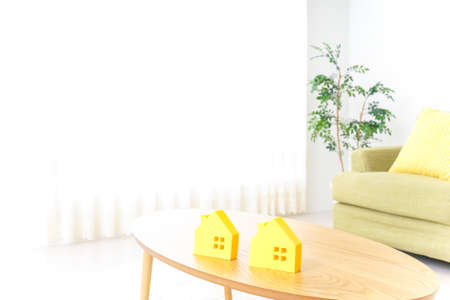Understanding Feng Shui: An American Perspective
Feng Shui, which translates to “wind and water,” is an ancient Chinese practice focused on creating balance and harmony in living spaces. In todays fast-paced American lifestyle, these principles can be easily adapted to modern apartment living, helping you find an apartment that not only feels good but also supports your well-being and success.
At its core, Feng Shui is all about the flow of energy—called “chi”—within your home. Good chi means feeling comfortable, safe, and positive every time you walk through your front door. In a country as diverse as the United States, where apartments come in all shapes and sizes, understanding how to apply these ideas can make apartment hunting easier and more rewarding.
Key Feng Shui Concepts for Apartment Living
| Feng Shui Principle | What It Means for You | How It Fits American Apartment Life |
|---|---|---|
| Flow of Energy (Chi) | Avoid cluttered or cramped spaces; choose layouts that feel open and airy. | Select apartments with plenty of natural light and minimal obstacles in walkways. |
| Balance of Elements | Incorporate earth, water, fire, wood, and metal elements into your décor. | Add plants (wood), a small water feature, cozy lighting (fire), or metallic accents. |
| Main Entrance Importance | The entryway sets the tone for your entire home’s energy. | Look for apartments with welcoming, well-lit entryways or add a cheerful doormat and bright lights. |
| Command Position | Your bed and main seating should face the entrance but not be directly in line with it. | Arrange furniture so you can see who enters the room without being directly in their path. |
Why Americans Are Embracing Feng Shui
Many Americans are turning to Feng Shui as a way to reduce stress and create peaceful homes amidst busy lives. Whether youre renting your first studio in New York or upgrading to a two-bedroom in Los Angeles, using Feng Shui principles can help you make thoughtful choices about location, layout, and interior design. With just a few simple adjustments, you can transform any apartment into a space that feels uniquely yours—and truly balanced.
2. Location Matters: Choosing the Right Neighborhood and Building
When it comes to choosing the best apartment using Feng Shui principles, location is one of the most important factors. In the United States, finding a place that feels both comfortable and convenient is key—not just for daily living, but also for supporting positive energy flow in your life. Let’s break down what you should look for in an apartment’s location.
Key Factors When Selecting an Apartment Location
| Factor | Why It Matters in Feng Shui | What to Look For |
|---|---|---|
| Proximity to Amenities | Easy access to grocery stores, parks, and schools means less stress and more convenience, supporting harmonious energy. | Choose neighborhoods close to what you need—think about your daily routines and lifestyle. |
| Natural Surroundings | Being near water, greenery, or open spaces enhances positive Qi (energy) and provides a sense of calmness. | Apartments near parks, rivers, or tree-lined streets are ideal. |
| Neighborhood Energy | The overall vibe of a neighborhood affects your well-being. Safe, lively, and welcoming areas promote good Feng Shui. | Look for communities with friendly neighbors and well-maintained surroundings. |
Understanding Neighborhood Energy
The energy—or “Qi”—of a neighborhood can influence how you feel at home. In American cities, some areas have a bustling, vibrant feel while others are quieter and more laid-back. Pay attention to:
- Noisy vs. Peaceful: Busy streets might offer excitement but can also bring stress. Quiet neighborhoods tend to be more restful and supportive of relaxation.
- Safety: A safe environment makes it easier for positive energy to flow. Check local crime rates and see how secure the building is before making a decision.
- Cultural Fit: Find a neighborhood that matches your personality and lifestyle—whether that’s artsy, family-friendly, or full of nightlife options.
The Importance of Building Placement
In Feng Shui, where the building sits within the neighborhood matters too. Try to find apartments that are not directly facing busy intersections or highways—these spots can create fast-moving energy that may feel overwhelming over time. Instead, buildings set back from main roads with plenty of natural light often have better Feng Shui.
Quick Tips for Choosing the Right Location:
- Visit the area at different times of day to get a true feel for the energy.
- Check for nearby sources of noise or pollution—like train tracks or factories—that could disrupt harmony.
- If possible, choose upper floors for better views and more privacy without being too isolated from street-level activity.
Your Next Steps:
Keep these factors in mind as you tour potential apartments. The right location will support both your everyday needs and your desire for a balanced, harmonious home according to Feng Shui principles.

3. Apartment Layout and Floor Plan Essentials
Why Layout Matters in Feng Shui
When searching for your new apartment, the layout and floor plan play a huge role in how energy, or chi, flows through your space. According to Feng Shui principles, a well-designed floor plan can boost your mood, health, and overall happiness. In the U.S., apartments come in all shapes and sizes, so its important to know what to look for.
How to Evaluate Floor Plans for Good Energy Flow
The main goal is to choose an apartment that feels open, inviting, and easy to move around in. Here’s what you should check:
| Feature | What to Look For | Feng Shui Tip |
|---|---|---|
| Main Entrance | Front door visible from living area; not facing a wall or window directly. | A clear path lets positive energy enter and circulate. |
| Room Shape | Square or rectangular rooms; avoid odd angles or sharp corners. | Regular shapes support harmony and balance. |
| Hallways | Short, wide hallways; avoid long, narrow corridors. | Prevents energy from rushing or feeling blocked. |
| Kitchen Location | Away from the front door; not sharing a wall with the bathroom. | Keeps energy fresh where you cook and eat. |
| Bedroom Placement | Private, away from main entry and noisy areas. | Encourages restful sleep and peace of mind. |
| Windows & Light | Larger windows; good natural light throughout the day. | Light boosts energy and keeps spaces lively. |
Natural Light: A Key to Well-Being
American apartments often feature large windows, but not all layouts make the best use of them. Aim for units with sunlight in the living room and bedroom at different times of day. North-facing apartments tend to be cooler and get less direct light, while south-facing units are usually brighter and warmer—ideal for most people. If possible, avoid dark interiors or units facing brick walls or alleys.
Quick Tips for Choosing Your Layout:
- Avoid “railroad” layouts: These are long and narrow with rooms connected like train cars—energy gets stuck at one end!
- No direct line from door to window: Chi (energy) flows too fast if your front door lines up with a big window or balcony door—look for angled entryways or place furniture to slow the flow.
- Smooth transitions: Spaces that gently lead from one room to another feel more comfortable than layouts with sudden turns or dead ends.
- No clutter zones: Imagine where shoes, coats, and bags will go—open entryways stay tidier and promote good vibes.
Your Well-Being Comes First
If a floor plan doesn’t feel right when you walk in, trust your instincts. The best apartment should feel welcoming as soon as you step inside! Use these Feng Shui tips as a guide to create a healthy home that matches your lifestyle and supports your well-being every day.
4. Evaluating Entrance and Interior Features
When searching for your ideal apartment, paying attention to entrance and interior features is key to creating a harmonious space using Feng Shui principles. These details help attract positive energy (chi) and promote well-being in your daily life. Here’s how you can assess these important elements:
Entrance: The Mouth of Chi
The entrance is often called the “mouth of chi” in Feng Shui. It’s where energy enters your home, so a good entrance sets the tone for the entire apartment.
| Entrance Feature | What to Look For |
|---|---|
| Visibility | Is the front door easy to find from outside? Avoid hidden or blocked entrances. |
| Lighting | A well-lit entryway attracts positive energy. Look for natural light or add lamps. |
| Cleanliness | Clutter-free spaces allow chi to flow in smoothly. Keep shoes, mail, and other items organized. |
| Door Quality | Solid, sturdy doors are best. Avoid doors that squeak or stick. |
Windows and Ventilation: Letting Energy Flow
Good air quality and natural light are essential for healthy chi. Windows connect you to the outdoors and affect how energy moves through your space.
- Natural Light: Choose apartments with plenty of windows. Sunlight lifts mood and brings in vibrant energy.
- Fresh Air: Make sure windows open easily for regular ventilation. Good airflow keeps energy fresh.
- Window Placement: Ideally, windows should offer pleasant views and not directly face another building’s wall or a busy street.
- No Blockages: Avoid heavy curtains or furniture blocking windows.
Main Rooms: Heart of Your Apartment
The living room, bedroom, and kitchen are main areas where you spend most of your time. Their arrangement and feel greatly impact harmony at home.
Living Room Tips
- Sofa Placement: Place sofas against a solid wall for support and a sense of security.
- Circular Flow: Arrange furniture so people can walk around easily—no sharp corners pointing at seating areas.
- Main View: When seated, you should see the entrance door if possible.
Bedroom Tips
- Bed Position: The bed should be diagonally across from the door but not directly in line with it (this is known as the “command position”).
- No Mirrors Facing Bed: Mirrors reflecting the bed can disrupt restful sleep.
- Simplicity: Limit electronics and clutter for a calm atmosphere.
Kitchen Tips
- Cooktop Location: A stove facing the main entrance is not ideal—energy may rush out too quickly.
- Tidy Counters: Keep surfaces clean to encourage nourishment and abundance.
- No Leaks: Fix dripping faucets; water leaks symbolize lost wealth in Feng Shui.
Selecting an apartment with these features in mind helps create a balanced environment where positive energy thrives, making your new place feel like home right from the start.
5. Personalizing and Enhancing Your Space with Feng Shui
Once you’ve found an apartment that fits the main Feng Shui principles, it’s time to make the space truly your own while still supporting positive energy flow. Here are some practical tips inspired by both classic Feng Shui and American home trends to help you arrange furniture, use color, and decorate for comfort and good vibes.
Arranging Furniture for Flow and Comfort
Furniture placement is key in Feng Shui. It’s all about letting energy (or “chi”) move smoothly through your apartment. In American homes, comfort and functionality are just as important. Here’s how you can combine both:
| Room | Feng Shui Tip | American Style Suggestion |
|---|---|---|
| Living Room | Arrange seating in a way that everyone can see the door but isn’t directly in line with it (“command position”) | Create conversation areas with a comfy sectional or sofa set, avoid blocking pathways |
| Bedroom | Place your bed so the headboard is against a solid wall and you can see the door from bed (but not directly in front of it) | Add plush bedding, bedside lamps, and keep clutter under control for better relaxation |
| Home Office | Your desk should face the entrance to your workspace if possible (“power position”) | Use ergonomic chairs and good lighting; add motivational art or plants for inspiration |
Using Color to Set the Mood
Color has a big impact on energy and mood. According to Feng Shui, different colors represent different elements and feelings. In American apartments, people often use color to express their personality or follow seasonal trends.
Color Guide for Different Spaces
| Space | Recommended Colors (Feng Shui) | Popular U.S. Décor Ideas |
|---|---|---|
| Living Room | Earth tones (beige, tan), soft greens, gentle yellows for stability and harmony | Pops of blue or navy with neutral walls; accent pillows for style & coziness |
| Bedroom | Pale blues, lavenders, soft pinks for calmness and romance | Crisp white bedding with pastel accents; blackout curtains for restful sleep |
| Kitchen/Dining Area | Sage green, light yellow, or white for freshness and nourishment | Bistro-style dining sets; open shelving to display colorful dishes/plants |
| Entryway | Warm browns or welcoming reds to attract positive energy inwards | Add a bold doormat or cheerful artwork near the door; keep shoes tidy in baskets/benches |
Incorporating Décor for Positive Energy (“Good Vibes”)
- Add Plants: Houseplants like snake plant, pothos, or peace lily boost air quality and symbolize growth.
- Let There Be Light: Use lamps, fairy lights, or candles to brighten dark corners—good lighting lifts spirits and keeps energy flowing.
- Ditch Clutter: Keep surfaces clear whenever possible. Storage baskets and shelves help organize everyday items stylishly.
- Mood-Boosting Art: Hang pictures that make you smile—nature scenes, family photos, or favorite quotes all welcome.
- Scent Matters: Use essential oil diffusers or candles in fresh scents like lavender or citrus to create a peaceful atmosphere.
If you blend these Feng Shui-inspired ideas with your personal style and comfort preferences, your apartment will feel balanced, inviting, and uniquely yours—just right for happy living!


